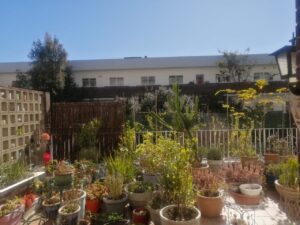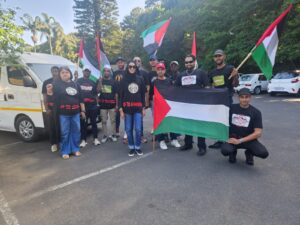By Al Qalam Reporter
The SAMNET Political Survey conducted recently amongst Muslims across South Africa has shown decreasing support for the African National Congress (ANC) in South Africa and “increasing support” for the Democratic Alliance (DA).
However, of the 1317 respondents surveyed, 61% said they were still undecided as to which political party to vote for on May 8.
And 79% of Muslim voters said they may not vote for the parties they have previously voted for due to leadership changes and internal strife within that party.
“Respondents who chose to disclose which political party they voted for showed that a majority of Muslims have voted for the African National Congress (ANC) in the past and many still do so. Trends show however, an increasing support for the Democratic Alliance (DA) and a decrease in support for the ANC”, the surveyor said
Seventy nine percent of Muslims believe there is a need for a party that takes particular interest in issues that are important to the Muslim community like religious freedom, foreign policy, safety and security and laws that curtail the freedom that Muslims have.
A large proportion of those surveyed (87%) replied that a political party’s foreign policy, particularly concerning Israel would influence their voting for that party.
Asked whether DA leader Mmusi Maimane’s visit to Israel would influence their vote for the DA, 82% replied in the affirmative.
When asked whether a political party’s support for Israel – and visiting Israel – makes that party one that you could NOT possibly vote for, 84% replied in the affirmative.
Of the young SA Muslims, 66% would be encouraged to vote for existing parties if the Ulama bodies and Muslim leadership encouraged them to do so. In voters over the age of 35, it is more of a balance with 51% saying ‘yes’ they would be encouraged by Ulama bodies/Muslim leadership to vote for existing parties.
When asked about what influences their choice to participate in elections, a staggering 56% said it was their desire to effect change. Other reasons were patriotic duty (21%), rulings of Ulama bodies (12%) and exclusion during Apartheid, but can vote now (6%).
When asked to choose which sources they would like more information from regarding current affairs and politics, 69% of Muslims said “Muslim media”, 52% said “Masjid/Jumuah lectures” and 39% said “Islamic gatherings such as Urs/Ijtima/big night lectures”.
Amongst the main sources of gaining information about political parties were mainstream media (80%), Muslim media (44%), and friends/family/conversational talk (40%). Other sources included Islamic gatherings and talks by Muslim scholars (18%), Jumuah lectures (15%), political rallies (10%) and branch meetings (7%).
The survey has shown that a mere 25% of Muslims will be attending political meetings in the run up to the 2019 elections.


